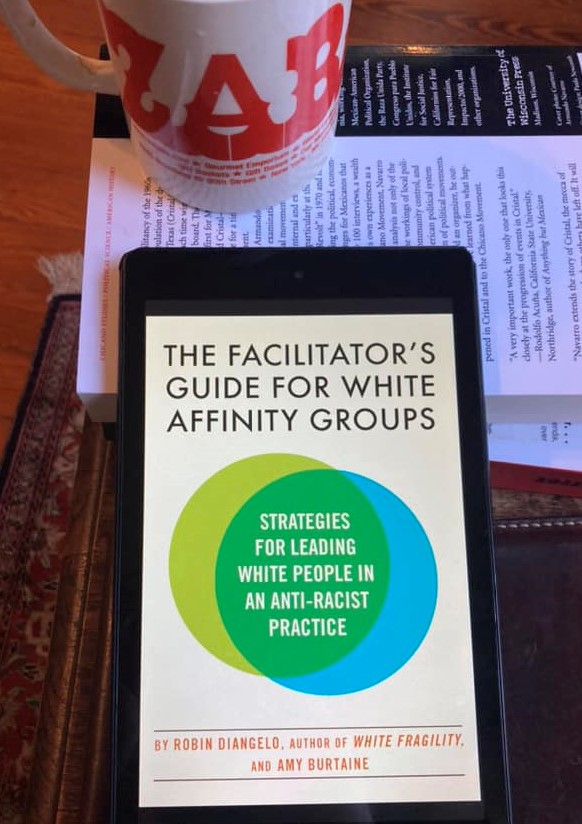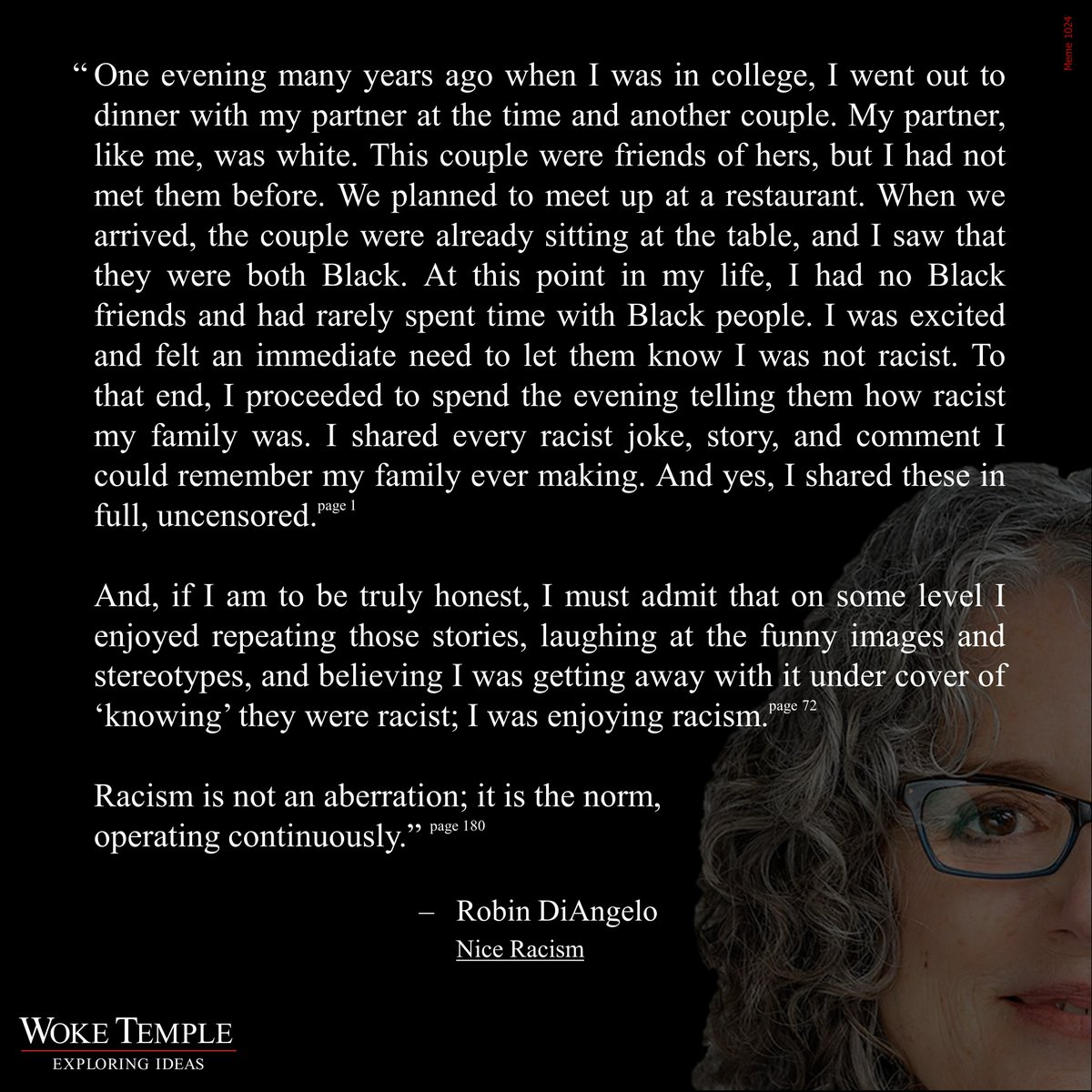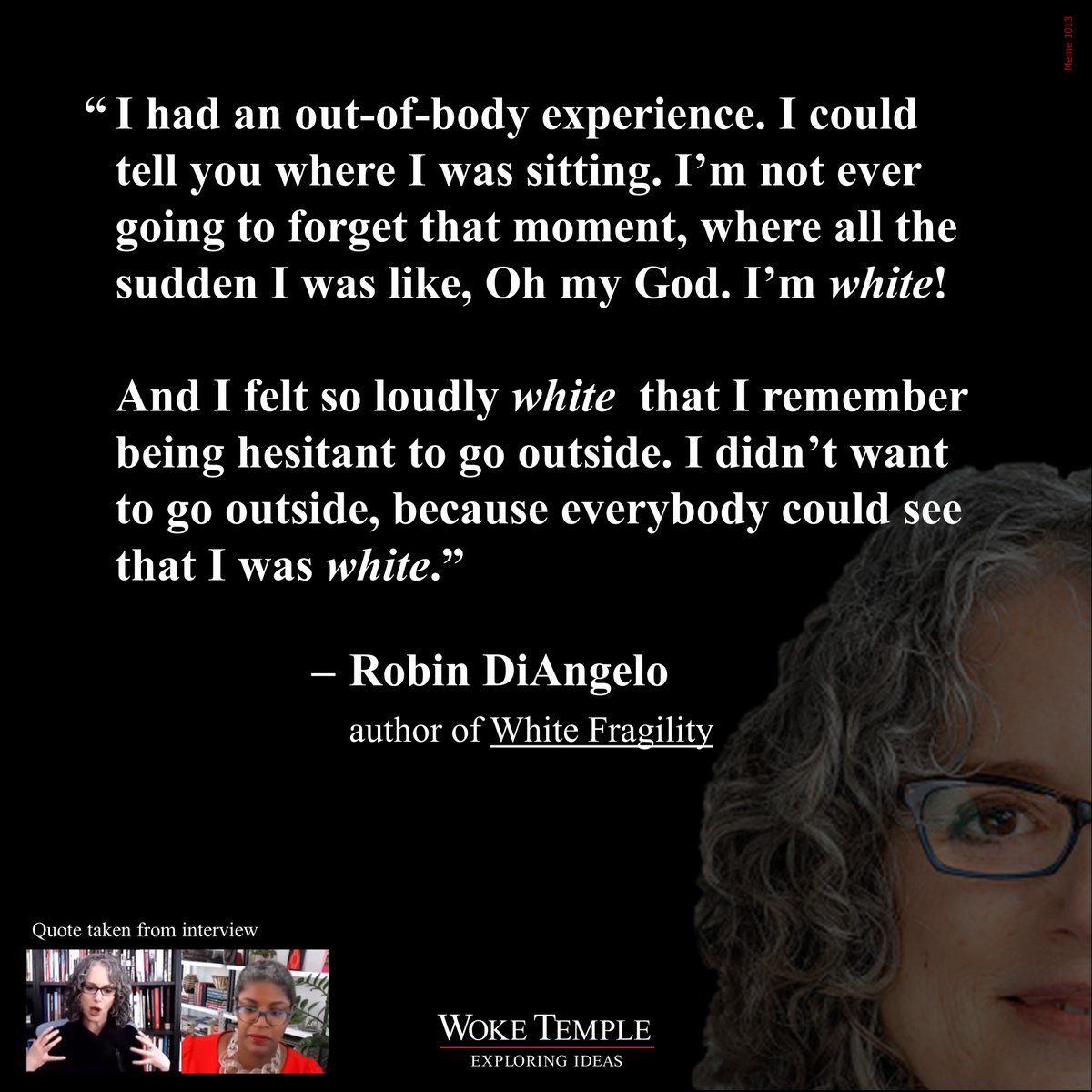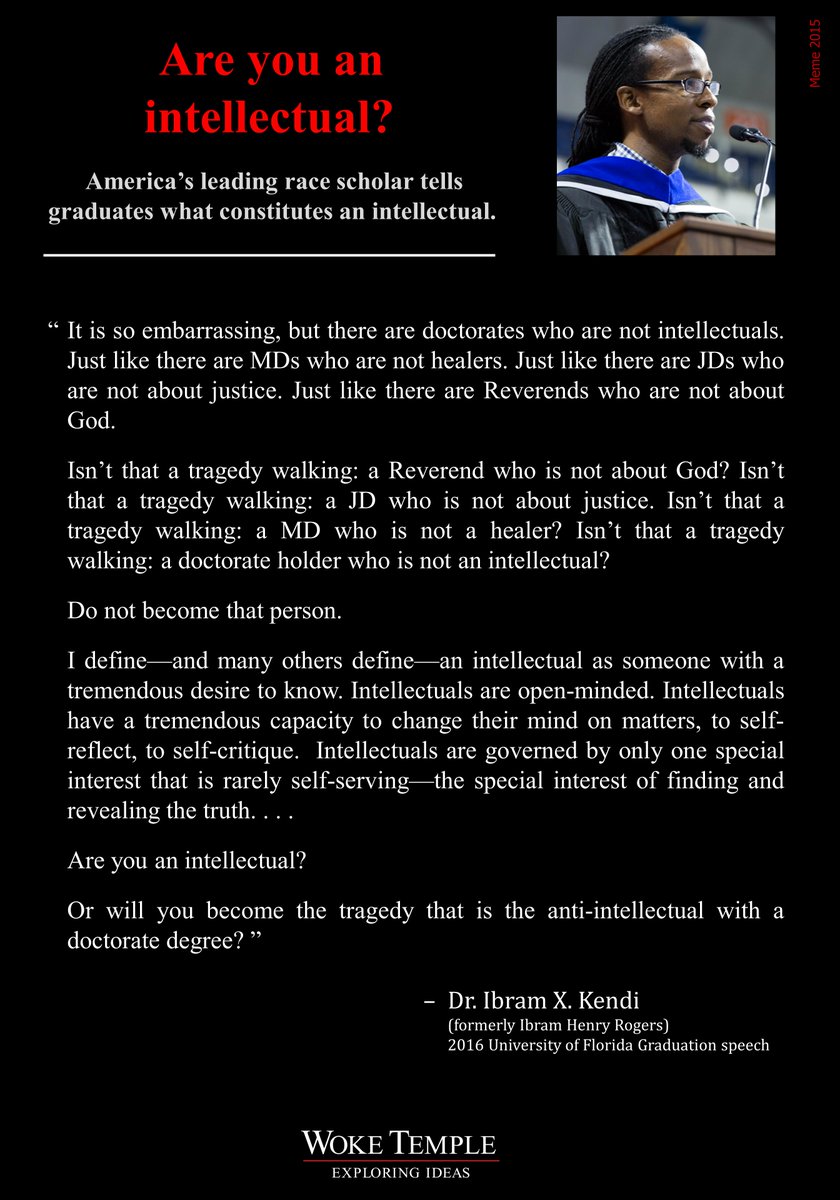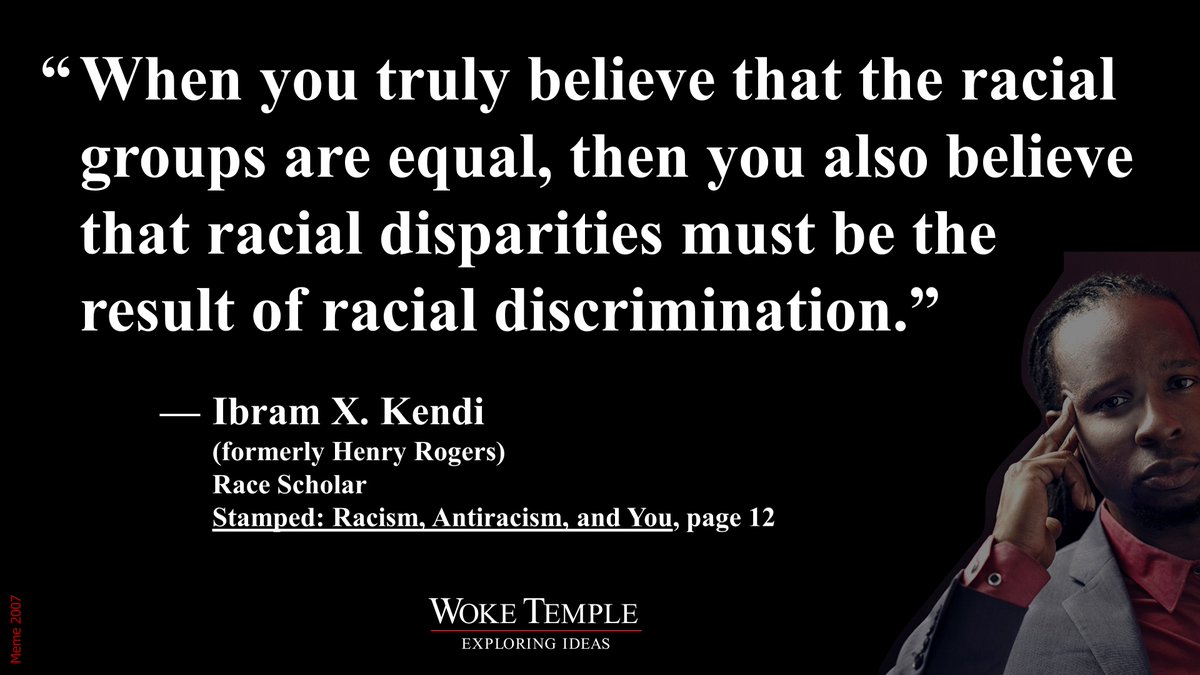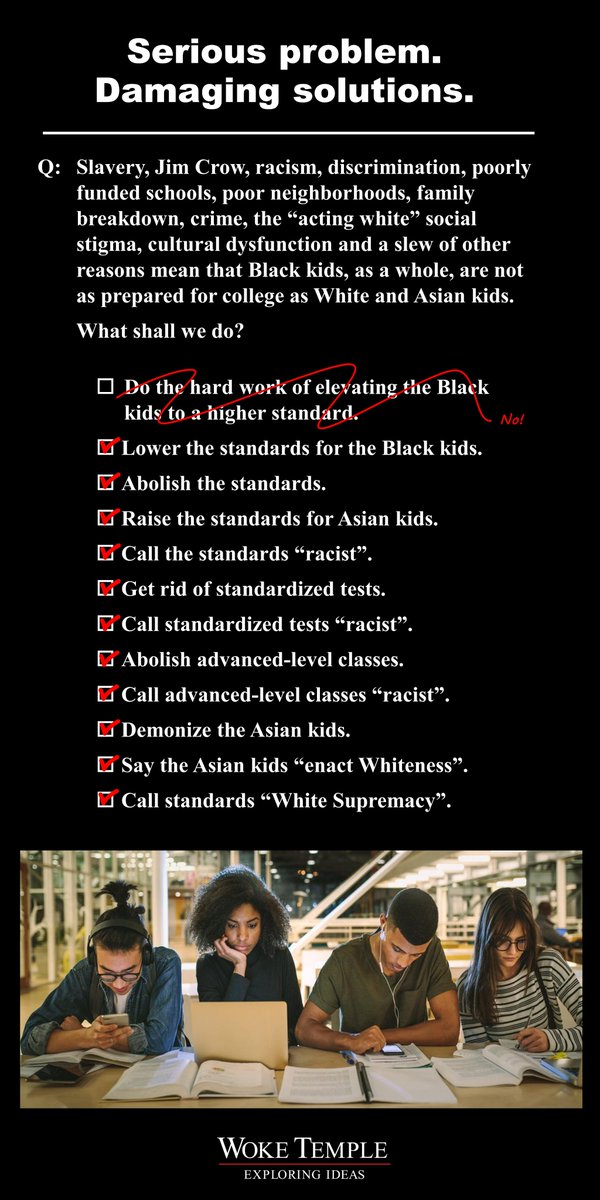
Scholarship so good, that disagreement is impossible.
#DoingDamageToAnImportantSubject
#RobinDiAngelo #WhiteFragility
#DoingDamageToAnImportantSubject
#RobinDiAngelo #WhiteFragility
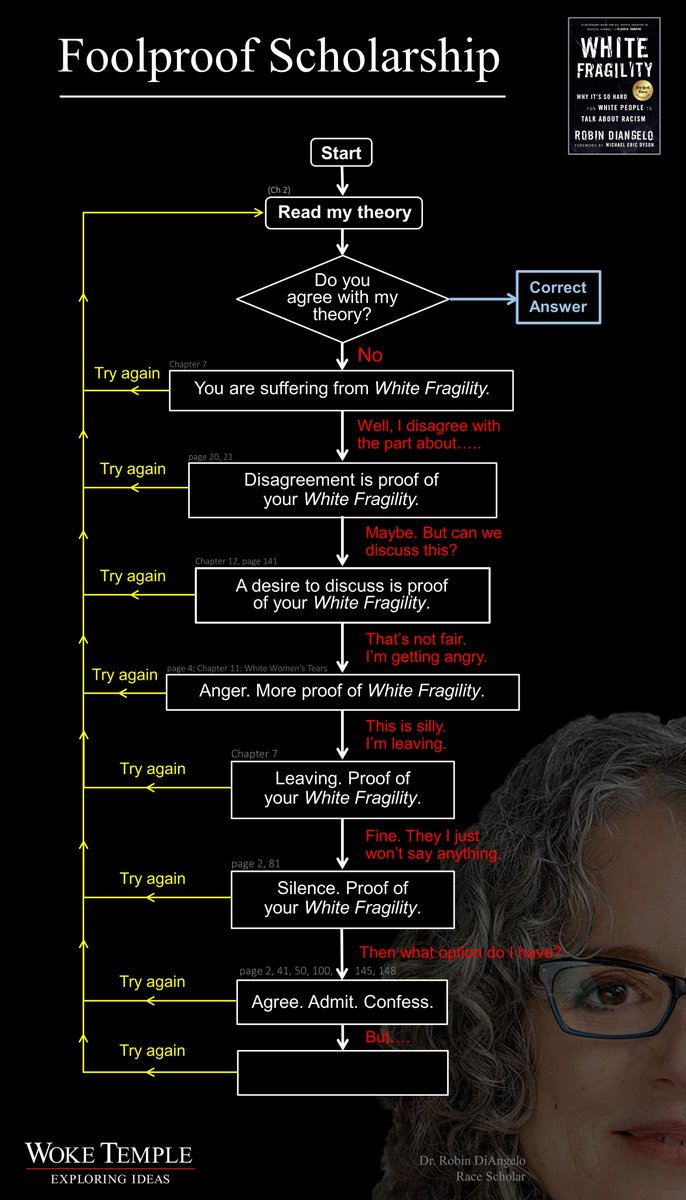
Like a lot of other “Race Scholarship”, there is always an explanation of why somebody doesn’t agree with their ideas. (Willful ignorance, internalized oppression, false consciousness, privilege-preserving epistemic pushback, white fragility, didn’t engage...
with the text, etc.). All the explanations involve mind-reading a person’s true intentions.
The notion that a person can 1) read the material; 2) understand the material; and 3) disagree with the material is outside their reach.
True scholarship doesn’t play games like this.
The notion that a person can 1) read the material; 2) understand the material; and 3) disagree with the material is outside their reach.
True scholarship doesn’t play games like this.
That’s sad. Because the scholars miss out on genuine discussions about their scholarship, on constructive criticism. Why? Because any legitimate criticism is can be summarily dismissed by the Kafka-trap explanation.
The result is gibberish scholarship, which we see here.
The result is gibberish scholarship, which we see here.
An example: White Fragility. It is a legitimate concept. White people can become fragile surrounding discussions about race.
But white people also have legitimate questions. There are limitations to the concept of white fragility and these limitations must be explored....
But white people also have legitimate questions. There are limitations to the concept of white fragility and these limitations must be explored....
1) Is class more important than race? Did the racism of the past create an underclass, and crawling out of an underclass is difficult for all races. (More difficult for blacks because of race, but how much more difficult? How much is class-based and how much race based?)...
Can we discuss class? 2) If all accusations of racism must be accepted, then will this power (given to blacks) be abused? If there is no possibility for misunderstanding? Whites must accept any and all explanations of racism? 3) Where is this evidence of an all-encompassing....
system of whiteness, white superiority and oppression? Different outcomes aren’t enough to demonstrate this system. Otherwise, we live in an Asian-supremacist system. 4) Does culture matter? 5) Do fathers matter?....
These are legit questions. But when you dismiss them in your “conversation” (which isn’t a conversation, it’s a lecture) as “fragility”, the conversation stalls. And it’s a dishonest tactic....
The scholar never explored the limitations of her idea. And now people are pushing back, asking sincere, legitimate, scientifically-sound questions. And she has no answer for them – other than “you’re fragile”.
What a loss.
//end
What a loss.
//end
• • •
Missing some Tweet in this thread? You can try to
force a refresh


